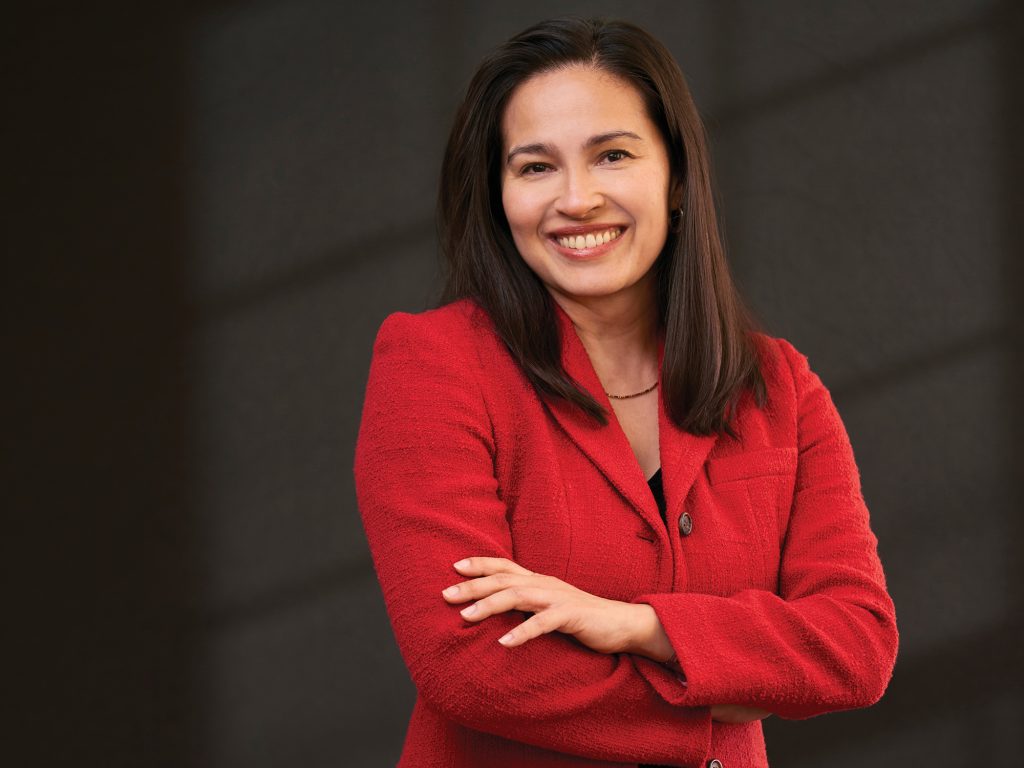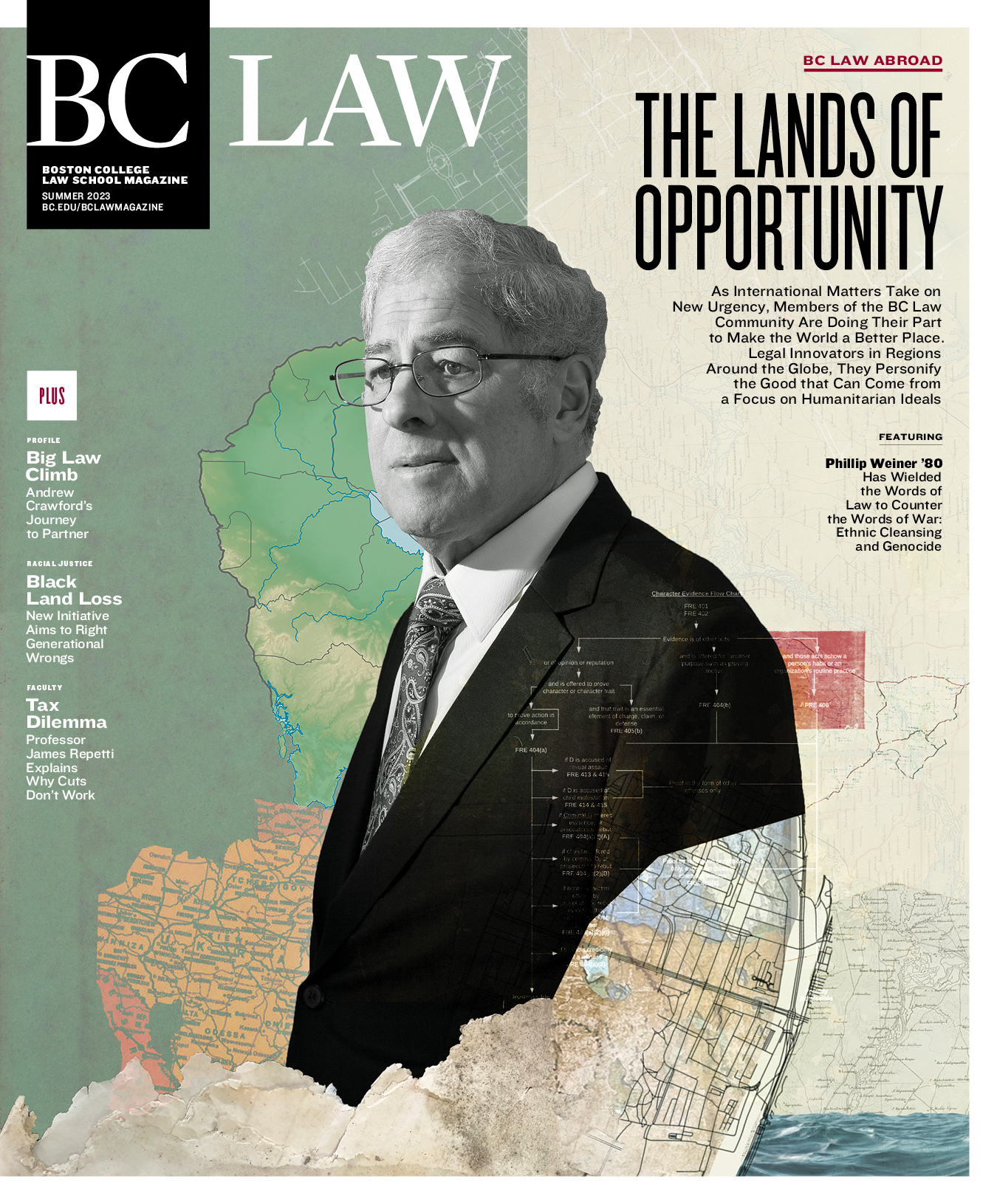I found so much meaning in my very first Commencement at Boston College Law School this May. We invited legendary broadcaster Judy Woodruff to speak to the divide in politics today, highlighting her decades of dedication to covering topics central to the rule of law. As a journalist, she is acutely aware of the social dangers of disinformation and of the critical importance of fact-finding and truth-telling—ethical foundations she shares with lawyers in their quest for fairness and justice.
Today, the rule of law is under significant pressure in the US and around the world. It is a concept that can be used for ill without good lawyers trained to ask how law and legal language can serve—or fail to serve—the greater good.
At Boston College’s earlier university-wide commencement exercises, the Ukrainian ambassador to the US, Oksana Markarova, was awarded an honorary doctorate of law. Her presence brought home the blatant example of the perversion of legal language in Vladimir Putin’s invasion of Ukraine. He called it a “special military operation” to protect people from “abuse” and “genocide” that he claimed had been propagated by the Ukrainian government. He also framed the invasion as in line with “norms of international law.” In Putin’s legal narrative, his full-scale invasion was a necessary and permissible act of self-defense against a NATO alliance that ignored the rules protecting a Russian sphere of influence since the collapse of the USSR.
“The rule of law is a concept that can be used for ill without good lawyers trained to ask how law and legal language can serve—or fail to serve—the greater good.”
Dean Odette Lienau
We all know, of course, who the true aggressor in this war is. And we understand all too well how disinformation can be weaponized, as can the language of law itself. Just as a responsible press can uphold social values by helping to identify and define right from wrong, fact from fiction, our community of lawyers must use the rule of law to uphold human dignity and to create real and lasting change in society.
For me, this hits close to home. I grew up in Indonesia, which was an authoritarian regime for many years. Authoritarian figures made the law—and interpreted and broke it in their image. They punished those, including many brave lawyers, who countered them. The regime declared that all of this maintained the rule of law. And so, for too long and for too many, the concept of the rule of law became meaningless, leaving deep consequences for the society and a mountainous task of rebuilding.
We don’t usually think of the US as a country in which the rule of law is under threat. But recent events here also highlight the ways that the rule of law—as grounded in ideals of democracy and equal human dignity—is not something we can take for granted. It can be weakened. And we have to be vigilant.
After all, law’s integrity depends, most importantly, on lawyers—those who use it, those who know it. This large concept—the rule of law—takes on life through our work and actions, becoming visible and meaningful to countless individuals, families, businesses, and communities.Judy Woodruff’s words carried that truth as she urged our graduates to do their part to move the country in a more welcoming and inclusive direction for all Americans, with a goal of fairness and opportunity. “We aren’t there yet, far from it,” she said. “But now, more than ever, we are reminded of those goals. And we need each of you to play your part in getting us there.”



